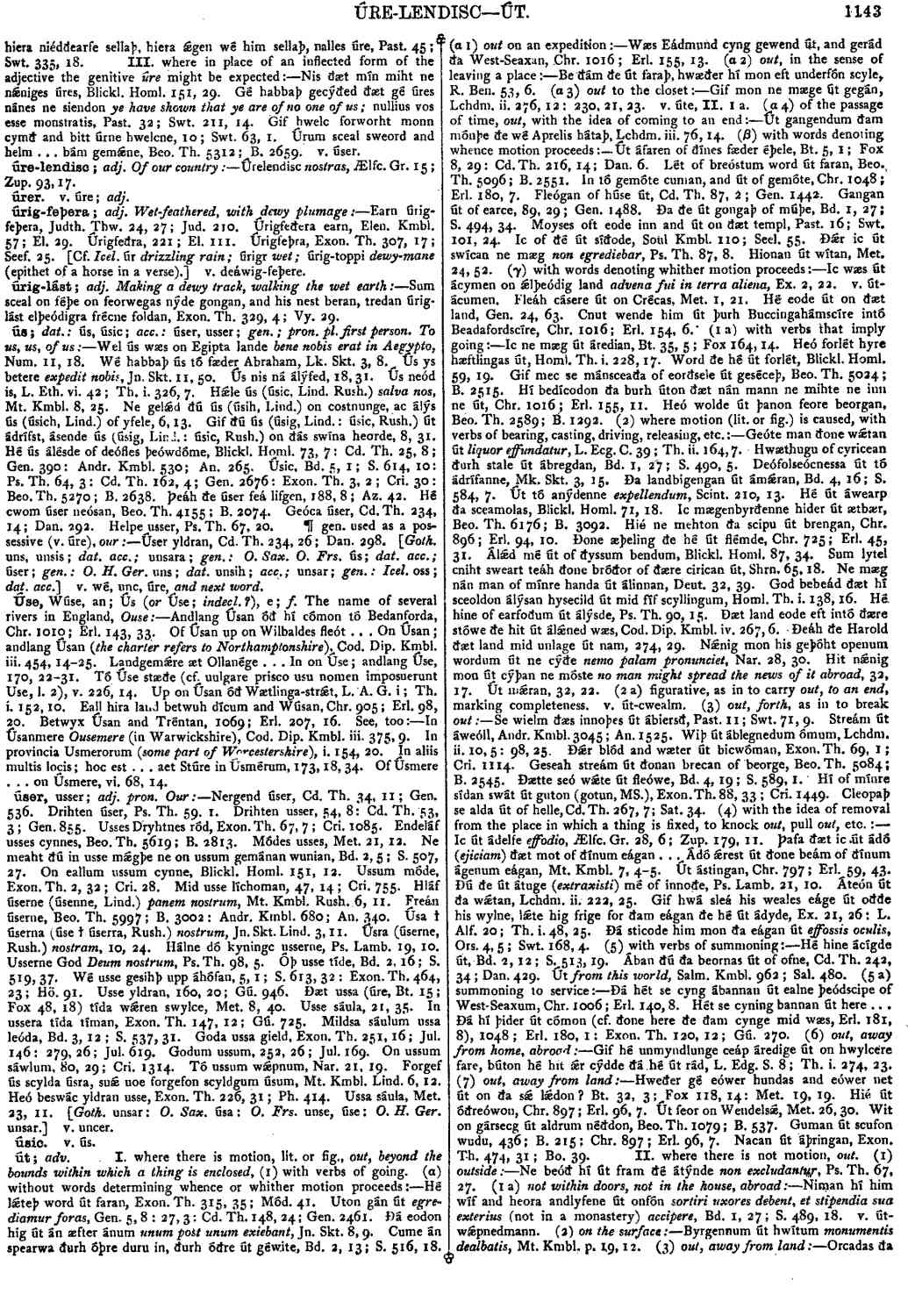ús
- pronoun
-
Wel ús wæs on Egipta lande
bene nobis erat in Aegypto,
- Num. 11, 18.
-
Wé habbaþ ús tó fæder Abraham,
- Lk. Skt. 3, 8.
-
Ús ys betere
expedit nobis,
- Jn. Skt. 11, 50.
-
Ús nis ná álýfed,
- 18, 31.
-
Ús neód is,
- L. Eth. vi. 42; Th. i. 326, 7.
-
Hǽle ús (úsic, Lind. Rush.)
salva nos,
- Mt. Kmbl. 8, 25.
-
Ne gelfǽd ðú ús (úsih,
- Lind.) on costnunge, ac álýs ús (úsich, Lind.) of yfele, 6, 13.
-
Gif ðú ús (úsig,
- Lind.: úsic, Rush.) út ádrífst, ásende ús (úsig, Lind.: úsic, Rush.) on ðás swína heorde, 8, 31.
-
Hé ús álésde of deófles þeówdóme,
- Blickl. Homl. 73, 7: Cd. Th. 25, 8; Gen. 390: Andr. Kmbl. 530; An. 265.
-
Úsic,
- Bd. 5, 1; S. 614, 10: Ps. Th. 64, 3: Cd. Th. 162, 4; Gen. 2676: Exon. Th. 3, 2; Cri. 30: Beo. Th. 5270; B. 2638.
-
Þeáh ðe úser feá lifgen,
- 188, 8; Az. 42.
-
Hé cwom úser neósan,
- Beo. Th. 4155; B. 2074.
-
Geóca úser,
- Cd. Th. 234, 14; Dan. 292.
-
Helpe usser, Ps. Th. 67, 20. ¶ gen. used as a possessive (v. úe),
our
:-- Úser yldran,- Cd. Th. 234, 26; Dan. 298.
Bosworth, Joseph. “ús.” In An Anglo-Saxon Dictionary Online, edited by Thomas Northcote Toller, Christ Sean, and Ondřej Tichy. Prague: Faculty of Arts, Charles University, 2014. https://bosworthtoller.com/34103.
Checked: 0